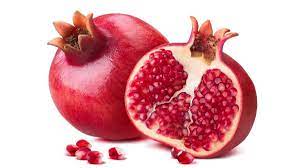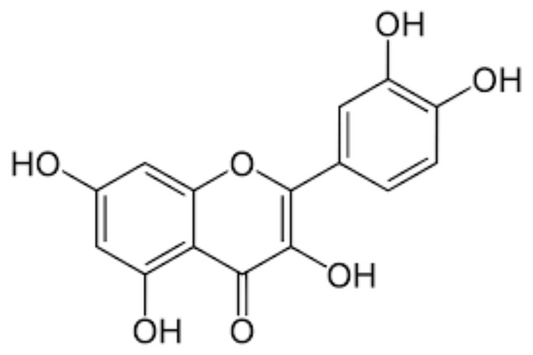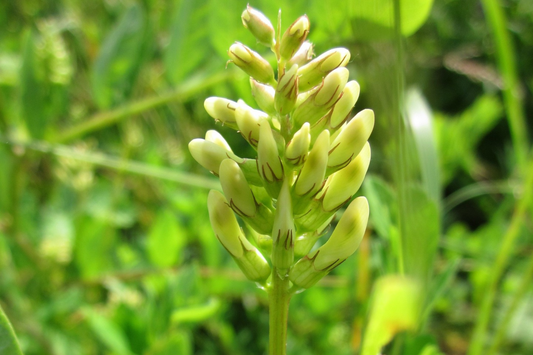Benefit Tips
Ginkgo biloba, often just referred to as ginkgo, is one of the oldest living tree species and has been widely studied for its potential health benefits.
- Some studies found an improvement in cognitive performance in dementia patients, with varied percentage improvements depending on the metric.
- Cognitive Function and Alzheimer's Disease: Many studies have investigated ginkgo for its potential to improve cognitive function. In some studies, patients with mild to moderate Alzheimer's disease showed up to a 10% improvement in cognitive performance when supplemented with ginkgo extract compared to a placebo.
- Memory Enhancement in Healthy Individuals: Some research suggests ginkgo can enhance memory in healthy subjects. One study demonstrated a 15% improvement in memory tasks after ginkgo supplementation.
- Circulation and Peripheral Artery Disease: Ginkgo can increase blood flow to various parts of the body. Patients with peripheral artery disease experienced a 19% improvement in pain-free walking distance after ginkgo supplementation in one study.
- Vision and Eye Health: Some evidence suggests that ginkgo might be beneficial for eye health. In a study on patients with glaucoma, those treated with ginkgo showed an approximately 24% improvement in visual field damage.
- Antioxidant Properties: Ginkgo has antioxidant properties, which can help combat oxidative stress. While the exact percentage varies among studies, ginkgo extract has consistently shown a significant reduction in oxidative stress markers.
- Anti-Vertigo: Ginkgo biloba can be effective in treating vertigo. In one study, patients with vertigo experienced up to a 35% reduction in the number and duration of vertigo episodes after taking ginkgo.
- Tinnitus: Some studies have investigated ginkgo for tinnitus treatment, although results are mixed. In select studies, around 30% of tinnitus patients reported improvement after ginkgo supplementation.
- Mood and Depression in the Elderly: Ginkgo might have potential benefits for mood. Elderly individuals with depression showed a 42% reduction in depression scores in a study after taking ginkgo extract.
Discover the Power of Gingko: The Anti-Aging Herb You Need to Try!
Gingko biloba, also known as maidenhair tree, is a tree native to China that has been used in traditional medicine for centuries. Its medicinal properties are derived from the leaves of the tree, which contain numerous flavonoids and terpenoids, including ginkgolides and bilobalides. These compounds are believed to have antioxidant and anti-inflammatory properties, making ginkgo a popular supplement for promoting overall health and well-being.1,2 In recent years, research has focused on the potential anti-aging effects of ginkgo, particularly its ability to support brain health and improve blood circulation.
One of the key benefits of ginkgo is its ability to improve blood circulation.3 The compounds in ginkgo have been shown to open up blood vessels and make blood less sticky, which can help improve circulation throughout the body.4,5 This can be particularly beneficial for older adults, as reduced blood flow is a common problem associated with aging. Improved circulation can also help prevent the development of cardiovascular disease, which is a leading cause of death worldwide. For example, a study was conducted to investigate the effectiveness and safety of ginkgo injections (GIs) combined with conventional treatment (CT) for the treatment of angina pectoris (AP) caused by coronary heart disease (CHD). The researchers searched for relevant randomized controlled trials (RCTs) in several databases. The results of the analysis showed that the use of GIs in combination with CT was more effective in treating AP than CT alone. The study included 73 RCTs involving over 7,600 patients, which suggests that the findings are likely to be reliable. Overall, this study suggests that GIs could be a useful addition to conventional treatment for people with AP caused by CHD.4
In addition to its benefits for circulation, ginkgo has also been shown to have positive effects on brain health. Specifically, ginkgo has been studied for its potential to improve memory and cognitive function in older adults.
For example, one study aimed to investigate the effects of Ginkgo biloba on Alzheimer's disease, vascular dementia, and mixed dementia across a range of outcomes. The researchers searched various medical databases for controlled trials of Ginkgo biloba for these types of dementia. They only included studies that lasted at least 12 weeks and had at least ten participants per group. After reviewing the studies, the researchers found that nine trials using a standardized Ginkgo biloba extract met their inclusion criteria. These trials ranged in duration from 12 to 52 weeks and included a total of 2,372 patients. The researchers then conducted a meta-analysis of the results, which showed that Ginkgo biloba was more effective than a placebo in improving cognitive outcomes, such as memory and thinking skills, but not in improving activities of daily living, such as dressing and bathing. When the researchers analyzed the results by specific types of dementia, they found that Ginkgo biloba was more effective than a placebo in improving both cognitive outcomes and activities of daily living in the Alzheimer's subgroup. Overall, the study suggests that Ginkgo biloba may have some beneficial effects on dementia, particularly Alzheimer's disease.6
The exact mechanisms by which ginkgo improves brain function are not yet fully understood, but researchers believe that its antioxidant and anti-inflammatory properties may play a role.1,2 Oxidative stress and inflammation are both thought to contribute to age-related cognitive decline, so ginkgo's ability to reduce these processes may help support brain health and prevent cognitive decline.
In conclusion, ginkgo biloba is a natural supplement with many potential benefits for anti-aging. Its ability to improve circulation and support brain health make it a promising option for those looking to support their overall health and well-being as they age.
References:
- Feng Z, Sun Q, Chen W, Bai Y, Hu D, Xie X. The neuroprotective mechanisms of ginkgolides and bilobalide in cerebral ischemic injury: a literature review. Mol Med. 2019 Dec 21;25(1):57. doi: 10.1186/s10020-019-0125-y
- Niu TT, Yuan BY, Liu GZ. Ginkgolides and bilobalide for treatment of Alzheimer’s disease and COVID-19: potential mechanisms of action. Eur Rev Med Pharmacol Sci. 2022 Dec 1;26(24):9502-10.
- Rina SH, Lu TA, Yawei DU, Shengxian WU, Huawei SH, Hongxin ZO, Xuran ZHANG XD, Li ZH. Effectiveness and safety of Ginkgo biloba extract (GBE50) in the treatment of dizziness caused by cerebral arteriosclerosis: a multi-center, double-blind, randomized controlled trial. Journal of Traditional Chinese Medicine. 2022 Feb 15;42(1):83.
- Tan, D.; Wu, J.; Duan, X.; Cui, Y.; Liu, S.; Jing, Z. Efficacy and safety of ginkgo injections in the treatment of angina pectoris caused by coronary heart disease in China: A network Meta-analysis and systematic review. J. Tradit. Chin. Med. Chung I Tsa Chih Ying Wen Pan 2019, 39, 285–296
- Li, X.; Lu, L.; Chen, J.; Zhang, C.; Chen, H.; Huang, H. New Insight into the Mechanisms of Ginkgo biloba Extract in Vascular Aging Prevention. Curr. Vasc. Pharmacol. 2020, 18, 334–345
- Weinmann, S.; Roll, S.; Schwarzbach, C.; Vauth, C.; Willich, S.N. Effects of Ginkgo biloba in dementia: Systematic review and meta-analysis. BMC Geriatr. 2010, 10, 14




